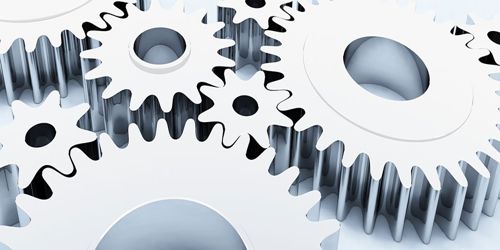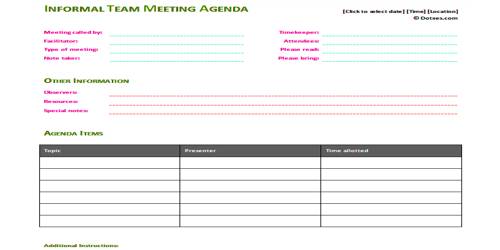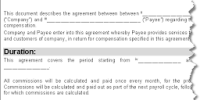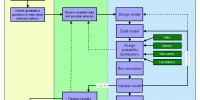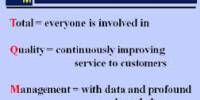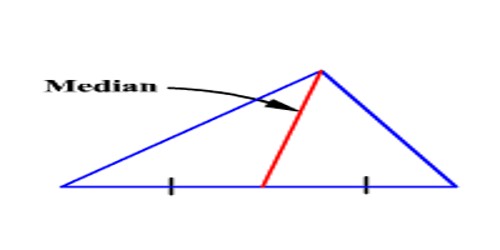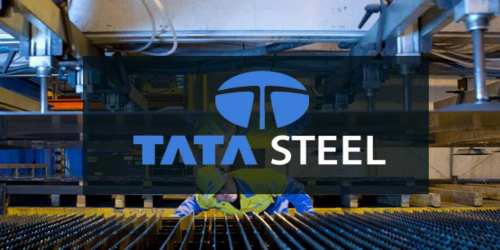Production control, one of the most important concerns in making a product, is coordinating the interaction of people, materials and machinery so at products are made in the proper amounts at the required times to fill orders. Six steps are involved: planning, routing, scheduling, dispatching, and follow-up and quality assurance.
Alternately, production control is the function of management which plans, directs and controls the material supply and processing activities of an enterprise; so that specified products are produced by specified methods to meet an approved sales programme. It ensures that the activities are carried in such a way that the available labor and capital are used in the best possible way.
Levels of Production Control
Production control starts with some particular goal and formulation of some general strategy for the accomplishment of desired objectives. There are three levels of production control namely programming, ordering and dispatching.
- Programming plans the output of products for the factory as a whole.
- Ordering plans the output of components from the suppliers and processing departments.
- Dispatching considers each processing department in turn and plans the output from the machine, tools and other work centers so as to complete the orders by due date.
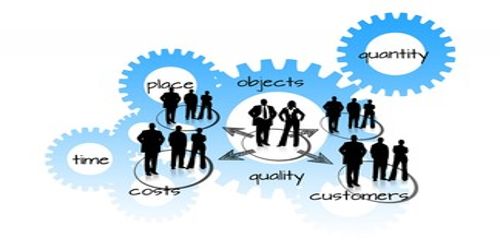
Planning:
Successful production, like other successful business activities, is based on planning. Production planners know what materials, equipment, process, and working time must be allotted to make a given time. Often they re form^.~ production workers themselves, so they can visualize the end product at various stages of completion, knowing from experience what remains to be done.
The production plan is a document that contains a list of materials and equipment needed to manufacture a finished product that also specifies which operations will be performed in- house or out-of-house. In addition, this plan reveals any operations that require special machinery or equipment to be brought out of storage or purchased and set up when the product reaches a particular stage of completion.
Production planer like S Nahar garments. They coordinate the performances of purchasing, manufacturing, shipping and marketing, all of which contribute to or need information about the status of an order at various stages of completion.
Routing:
Routing is the production control step in which a logical sequence is established for the operations that the product must undergo on its way to completion. Each job’s path is defined, thus determining what work will be done at what point. The person handling routing for a brewery must take into account all of the following steps: germinating the barley gain, cleaning it, milling it, weighing it, cooking it, blending it with water, removing the grain solids to produce a clear liquid, brewing the liquid, straining out hops, cooling the liquid, fomenters it, and again, filtering and packaging the beer.
Scheduling:
Scheduling is the production control step that allots time for each operation along the route. Knowledgeable production planner is asset here. Schedules that allow too much or too little time can lead to slack periods in various departments, causing wasted time and perhaps employee layoffs, or create bottlenecks that back up work at certain points, causing late deliveries and canceled orders. Production planner also has to take network time into account. A production planner who does not know how much time to allow will leave workers idle at next step along the route.
A product rarely follows the original schedule from start to finish. Production planner must reschedule work in process because of canceled orders and customer requests of earlier delivery dates of because of a machinery breakdowns, design changes, strikes, and inclement weather, all of which can cause lost work time and delays in the delivery of essential materials.
Dispatching.
Dispatching occurs after jobs have been planned, routed, and scheduled. This is the production control step in which a production planner release a job to the first production department on its route. Before dispatching, production control employees must gather up the materials and parts required by the production plan and issue them to the correct department.
Follow-up:
Follow-up is the production control step in which production planners monitor each job’s progress along its route, and report and attempt to deal with any delays or difficulties that occur. A job is usually identified by number so it can be traced from one operation or department to the next. Follow-up is essential in these cases to ensure that work moves according to schedule. When delays occur, production planners should be notified so they can bring the job back on schedule or reschedule it.
The production control department generally has to perform the following functions:
(i) Provision of raw material, equipment, machines and labour.
(ii) To organise production schedule in conformity with the demand forecast.
(iii) The resources are used in the best possible manner in such a way that the cost of production is minimised and delivery date is maintained.
(iv) Determination of economic production runs with a view to reduce setup costs.
(v) Proper co-ordination of the operations of various sections/departments responsible for production.
(vi) To ensure regular and timely supply of raw material at the desired place and of prescribed quality and quantity to avoid delays in production.
(vii) To perform inspection of semi-finished and finished goods and use quality control techniques to ascertain that the produced items are of required specifications.
(viii) It is also responsible for product design and development.
Information Source:
